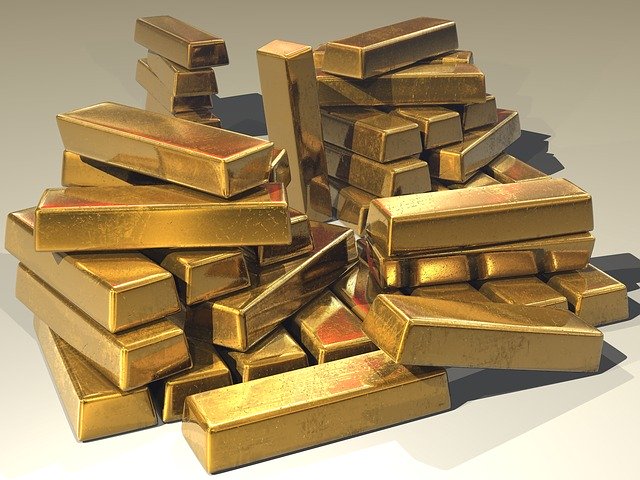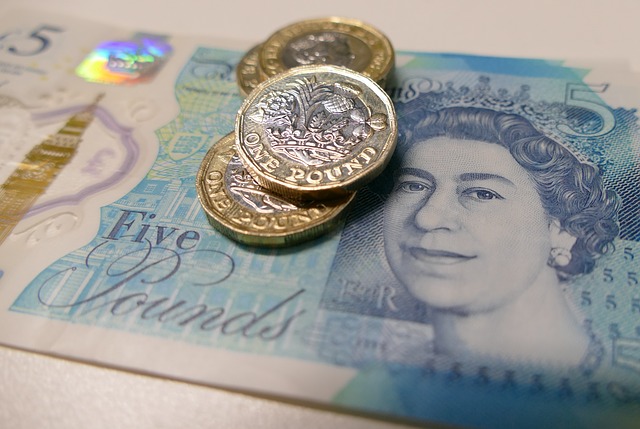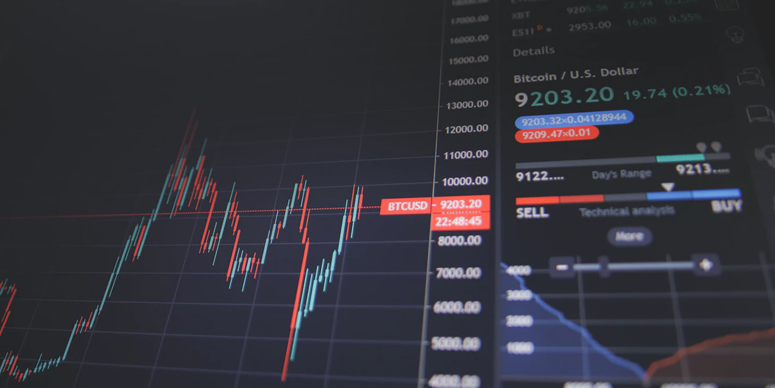 The foreign exchange market is one of the most influential markets in the world today .The New York Stock Exchange, The Nasdaq and The Tokyo Stock Exchange are the three largest security markets in the world. They have a daily trading volume of around 300 billion US dollars combined the foreign exchange market has a daily trading volume of around 6.6 trillion dollars per day according to the Bank for International Settlements which is basically the central bank. For central banks this daily figure is more than the annual GDP of all but two of the largest nations on earth China and the USA, so what is going on here beyond tourists changing their money out to go shopping on holidays why does this market even exist well in this article I want to explore three things why is a foreign exchange market so large influential, who actually conducts these trades and how and while we’re here why is it that the UK pound is so valuable compared to all other currencies.
The foreign exchange market is one of the most influential markets in the world today .The New York Stock Exchange, The Nasdaq and The Tokyo Stock Exchange are the three largest security markets in the world. They have a daily trading volume of around 300 billion US dollars combined the foreign exchange market has a daily trading volume of around 6.6 trillion dollars per day according to the Bank for International Settlements which is basically the central bank. For central banks this daily figure is more than the annual GDP of all but two of the largest nations on earth China and the USA, so what is going on here beyond tourists changing their money out to go shopping on holidays why does this market even exist well in this article I want to explore three things why is a foreign exchange market so large influential, who actually conducts these trades and how and while we’re here why is it that the UK pound is so valuable compared to all other currencies.
Global supply chains in Earlier Days
We live in an increasingly globalized world, everyday businesses are more and more reliant on global supply chains, to ensure that products and services are produced and provided in the best country possible you want something manufactured cheaply produce it in China, you want something built to the highest standard build it in Germany, you want the best sea food import it from Japan. 100 years ago this wasn’t the way most countries thought, you either produced something locally or it basically didn’t exist at all. Trade was incredibly minimal and it was seen as an extreme luxury to have something like a foreign motor car or imported food, today this is the norm it might actually be hard for some people to find something in their house that was produced in their home country this was because the world cottoned on to the idea of comparative advantage.
Also Read: why is bitcoin billionaire such a popular game

If you ask Germany to produce our iPhones they could do it very easily, they have the infrastructure and technical expertise to produce these devices with no real problem at all but Germany has very expensive and limited labour, it also has very stringent environmental regulations regarding industrial waste and it is not close to the component suppliers for this type of product so these German iPhones would cost an astronomical amount. Educated estimates put it at around 4000 US dollars. Similarly if you want China to build a high-end luxury sports car it probably could do it. China has shown that it has the industrial capacity to design and manufacturer its own cars but they are kind of a bit yeah this is because China is more suited to mass medium quality manufacturing like say producing iPhones.
Why was this important
China has a much larger low skilled labor force looser environmental regulations and it is the home of the factories that make the components that make the phones what this means is that instead of Germany trying to allocate some of its resources and labor force to building massively expensive phones for itself and China doing the same to make some good-awful cars they can just agree to stick to what they do best. Germany will make the cars and China will make the phones this way we have lots of cheap phones and a good amount of high quality cars and then to make sure the citizens of each country can buy both cars and phones. Germany will trade some of its cars for some of China’s phones and everybody wins out. Germany gets cheaper phones than would have been able to produce itself and China gets better cars than it would have been able to reduce this is because each country had a comparative advantage for the product that they specialize in, this is of course an extremely over simplified example of comparative advantage and the big distinction is that in reality countries don’t bother say 50 iPhone 11S for one Mercedes C63. They use their currencies but of course, Chinese iPhone manufacturers aren’t interested in being paid in Euros and German car manufacturers aren’t interested in been paid in Chinese Yuan, so they trade their currencies. This makes a secondary market because suddenly you’re not only exchanging cars and phones but also Euros and new brands.
So the foreign exchange market has grown so large because global trade has grown. But this isn’t the whole story, The Bretton Woods conference which established a gold standard for currencies took place in July of 1944 in the Mount Washington Hotel in Bretton Woods Washington a total of 44 countries met with attendees limited to the Allies in world war ll. The conference established the International Monetary Fund and the World Bank but most importantly it set out the guidelines for a fixed exchange rate system. The system established a gold price of 35 US dollars per ounce with participating countries pegging their currency to the dollar, what this meant is that there was no real market for currencies, there was just a fixed rate of this rate for this currency for this price irrespective of supply and demand. This all sounds nice and very simple and it did work well for quite a while but for anybody that knows anything about economics, you will know that fighting the forces of supply and demand is like fighting the flow of water on a riverbank eventually the continuous forces are going to win out.
The first large crack in the system
The first large crack in the system appeared in 1967, with a run on gold and an attack on the British Pound that led to a 14.3% devaluation in the currency despite the conservative efforts by their government to pull this currency back in line with its predetermined level. Later President Richard Nixon took the united states off the gold standard in 1971, directed secretary Connolly to suspend temporarily the convertibility of the dollar into gold or other reserve assets and by late 1973 the system had collapsed and participating countries were allowed to float their currencies freely. This meant the currencies were traded on open market just like shares or oil or beanie babies. The growth of global trade and the liberation of currencies to live their best life at whatever value the market decides for them is why the market is so influential today.
who is actually conducting this trade?
So now who is actually conducting this trade, it’s likely that most people really don’t have that much exposure to the foreign exchange market. Going on holidays or perhaps doing some online shopping through a website that doesn’t automatically convert to the local currency for you. These types of retail transactions though make up a tiny percentage of the total foreign exchange market, the real big players are companies investment firms and governments all of which play an equally influential role. Businesses are the easiest to understand if they want to open up a new store in a new country they need to transfer money to that country and convert it into the local currency to pay for workers supplies and expenses. This is all pretty straightforward and easy to understand but it does present a problem say an American fast-food chain is doing amazing business in the States in 2014 and they decided to set up a new store in Australia, it sent over 50 million US dollars as an initial investment and transferred it into Australian dollars because of the exchange rate they would have received about 55 million Australian dollars at this time just enough to pay for some new restaurants to be built and staff and supplies to be paid until the business starts turning a profit and let’s say it does really well and five years later here in 2009 the franchise operation gets sold to an Australian investor for seventy-five million dollars this would represent a 50 percent return on investment for the American company but in the same time the Australian dollar has tumbled in value to a point where seventy five million dollars is only worth 50 million U.S. Dollars which represents a true return on investment of zero percent which is pretty bad.
Read: bitcoin code review
Understanding the Risk
The business has fallen victim to foreign exchange risk which is something that anybody planning on running an international business should be well aware of. Most businesses are happy to take on risk but they prefer to do it in their field of operations. A burger franchise would rather risk going out of business because a newer hipper more Instagram or Wahl burgers franchised opened up in the same market rather than going out of business because the foreign exchange market did something funky so they need a hero who is willing to take on the risk for them which brings us on to the investor. Investors love the foreign exchange market or Forex market because of the potential for returns it represents this is done through financial instruments called derivatives.
Anytime you hear derivative just remember they are kind of just a made-up thing that has their value derived from some other asset, what investors will do is basically make a bet with the company if the value of the foreign currency goes up relative to the currency in your home market you pay me if the foreign currency goes down, I pay you. What this means is that no matter what happens to the Australian dollar in our previous example the company would make a stable profit if the Australian dollar did what it actually did do and falling value the investor would have to pay the company about 25 million US dollars to make up the difference between the currency fluctuations if the Australian dollar did happen to go up during this time it would mean that the fast-food company would otherwise have made say 100 million dollars but in this instance it would have to pay 25 million dollars to the investor in both outcomes the company makes a stable 75 million dollars representing the 25 million dollars in profit that it should have made without needing to worry about the ups and downs of the foreign exchange market and the investor took a risk for some potential of profit which is ultimately just what investing is
speculative investors want to take on risk for the potential of profits
This can take some time to wrap your head around but if you take nothing else away just remember that speculative investors want to take on risk for the potential of profits and a normal international business wants to get rid of any foreign exchange risk even if it means that it might otherwise miss out on some speculative profits it really is a match made in heaven between these two entities. Governments are the major player to understand, some governments most notably the Chinese government wants to reduce the value of their currency on foreign exchange markets there is not enough time to get into why they do this but this is how they do it today basically just use Chinese currency to buy up huge piles of foreign currency this both pushes up the price of the currency being bought while simultaneously reducing the price of the currency being sold this artificially devalues the Chinese currency and gives the Chinese government massive piles of foreign currency reserves which makes a lot of conspiracy theorists very scared.
Why is UK pound valuable compared to all other currencies.

So last point of note, why amongst all this speculation and trading and volatility has the British Pound always been the most valuable currency in the world the pound has taken a hit with the turmoil surrounding brexit but it is still the world’s most expensive currency unit. But today there really is, no good reason why historically when currencies were tied to the value of precious metals one US dollar was exchangeable for 1.5 grams of gold. One pound sterling was exchangeable for one pound of sterling silver which was and still is much more valuable than1.5 grams of gold today. The gold and silver standards of these countries has been removed but a little bit of the pounds value today is a hangover from that, in reality it shouldn’t be something that you look too far into an easier example to understand is that today a share of the Seaboard corporation cost about 4200 US dollars whereas a share in amazon only costs about 1813 dollars, this doesn’t mean anything really unless you consider the amount of shares each company has in reality. Amazon is many times larger than the Seaboard corporation although looking at the share price it wouldn’t be so easy to tell this general confusion is caused by most people, being more used to purchasing things with an intrinsic value. If you want to buy a Toyota Corolla it will cost X amount of dollars if you want to buy a McLaren 720’s it will cost a lot more dollars. This is simple enough a McLaren is ultimately a more valuable car with more performance and more prestige it should cost more. Currencies and shares and derivatives don’t have intrinsic value, realistically they are just pieces of paper or more likely digits on a computer. They are only as good as what you can exchange them for so you can put whatever figure you want on the piece of paper it’s true value will be determined by what someone is willing to exchange for it.

